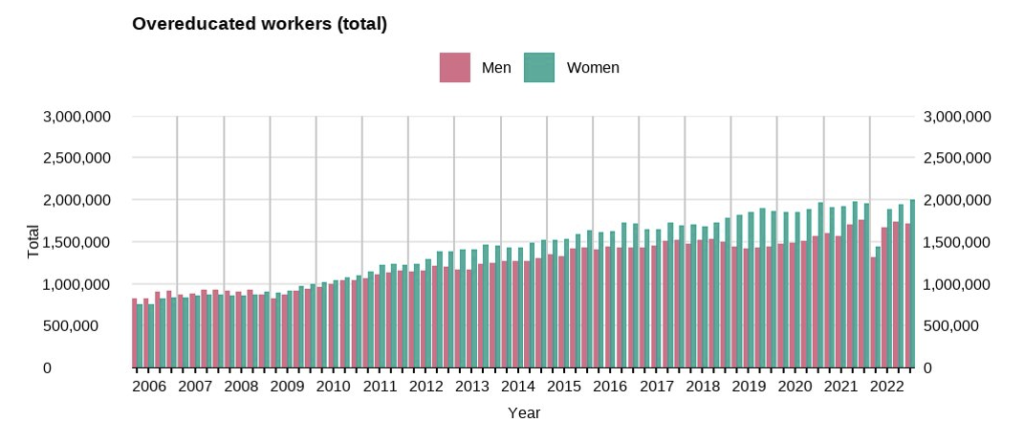This week, 2-8 of October, is Challenge Poverty Week in Scotland. At a time when unemployment rates are said to be the lowest in “nearly 50 years” [i], poverty in Scotland is an increasing reality for too many. Already in 2022, more than 7 in 10 families were going without essentials, around 6 in 10 could not afford an unexpected expense, more than half were in arrears and around a quarter had to use credit to pay for their essential bills [ii]; and the full effects of crises such as Covid-19, the war in Ukraine and high inflation are not yet captured in these statistics. Those in receipt of Universal Credit, which now includes income support for those in employment but whose work does not pay enough to get by, are one group greatly affected by poverty, especially women, with more than a quarter reporting being food insecure.
Underemployment (which we define as working in jobs with insufficient hours, wages, or that do not match skills or education) is hardly a voluntary choice, and the current and future consequences for those experiencing underemployment and for their families are stark. Those in insecure employment are more likely to experience financial hardship, stress and anxiety, and poor mental health compared to secure workers [iii]. Those living in poverty, adults and children, experience a raft of negative consequences from poorer health to lower education attainment. The recent Work Foundation report [iv] on why people risk insecure work tells us a story of limiting choices that individuals face at a time of growing inflation, high cost of living, continuing austerity, and reduction of social security. It is now, perhaps more than ever, when secure well paid work might mean for an increasing majority of people the difference between living in poverty or not.
Our research project —The Underemployment Project— aims to fully capture the lived experience of underemployed workers. With prestigious funding from the UK’s Economic and Social Research Council, the 3-year project is looking at how underemployment affects workers within and outwith work (e.g., finances, job satisfaction health and wellbeing, relationships, etc.) and how it also affects their household, families, friends, and communities. Paid work is said to be the best route out of poverty but for many workers experiencing underemployment this is not the case. So, we are looking at the effects of working in jobs with insufficient hours, wages, and/or that do not match workers’ skills or education. Our first findings show that there has been a steady increased in the number of workers employed in jobs for which they are over skilled or over-qualified (as per the figure below).

Our important project is giving visibility and understanding to underemployment, and searching for solutions to this growing and problematic feature of the labour market that has consequences for individuals, households, communities, and society. The rise in underemployment poses real challenges for reducing poverty and for the government’s levelling up agenda. Governments must listen to the evidence on causes and solutions to poverty such as those put forward during Challenge Poverty Week, and we, civil society, need to keep providing the knowledge and evidence on this.
[iii] Gable and Florisson, 2023
[iv] ibid
